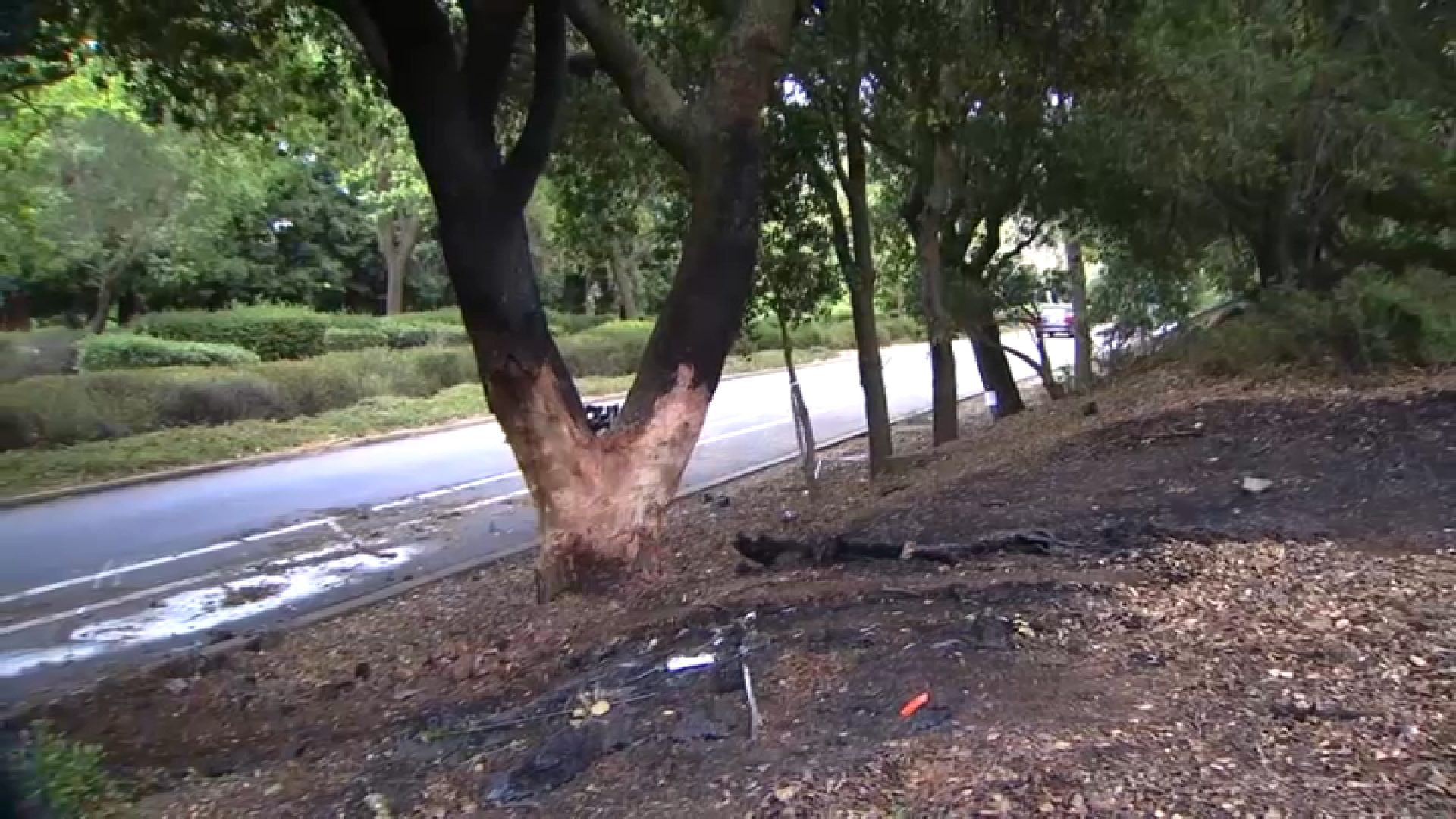Defense attorneys for the men charged in the deadly Ghost Ship warehouse fire got a detailed look at the prosecution's case Monday in a court filing.
The preliminary hearing for Derick Almena and Max Harris was postponed until Wednesday, but District Attorney Nancy O'Malley and prosecutors filed a memorandum outlining the case against the men who face 36 counts of involuntary manslaughter.
In the memorandum, O'Malley states that Almena became the leaseholder of the Ghost Ship warehouse in 2013. The terms of the lease did not permit the warehouse to be used as a residence, but Almena moved his wife and children into the building and began to sublet the space to others charging $350 to $1,400 per month.
O'Malley states that Almena allowed and even encouraged tenants to use nonconventional building materials such as recycled wood, tapestries, pianos and RV trailers to create their living spaces. According to the memorandum, Almena increased the risk to residents and visitors by storing "enormous" amounts of flammable material from the floor to the ceiling on the building's first floor.
The document says that Harris moved into the warehouse in 2014. Almena made him "creative director," allowing him to collect rent and mediate disputes. According to O'Malley, the pair allowed up to 25 people at one time to live and work in the warehouse. Almena also advertised the upstairs for music events and social gatherings, allowing as many as 100 people to gather in the unsafe and unpermitted warehouse.
O'Malley claims Almena and Harris altered the interior of the warehouse by building a makeshift bathroom, cutting a doorway into a wall and cutting a hole into the roof. Almena also built a "dangerous and narrow" wooden staircase that required people to walk up and down in a single file. All of this was done without going through the permit and inspection process, the memorandum says.
Local
The document claims that once Almena changed the nature of the warehouse's use, it became his responsibility to install fire sprinklers, smoke alarms, exit signs and to create an evacuation plan.
"Witnesses state they warned Almena numerous times about the obvious fire hazard inside the warehouse," the memorandum says.
The filing also claims the pair deceived law enforcement officers who responded to the warehouse for calls for service.
"Almena and Harris lied to law enforcement officers by insisting that no one lived in the warehouse," states the document.
O'Malley says the defendants' actions were "reckless, creating a high risk of death," ultimately leading to the deaths of 36 people who became trapped inside when the fire started.
Almena's attorney, Tony Serra, acknowledges the deadly fire was a "terrible, terrible event" but insists Almena isn't responsible. Serra has suggested it was the property owner who should be facing charges, not Almena. Harris's defense attorney, Curtis Briggs, claims the prosecution has made several "false assumptions" about his client.
"Now that I've seen their memorandum and how they intend to prove their case, I'm confident we can demonstrate to the jury Max is innocent," he said.
The preliminary hearing is scheduled to begin on Wednesday.



